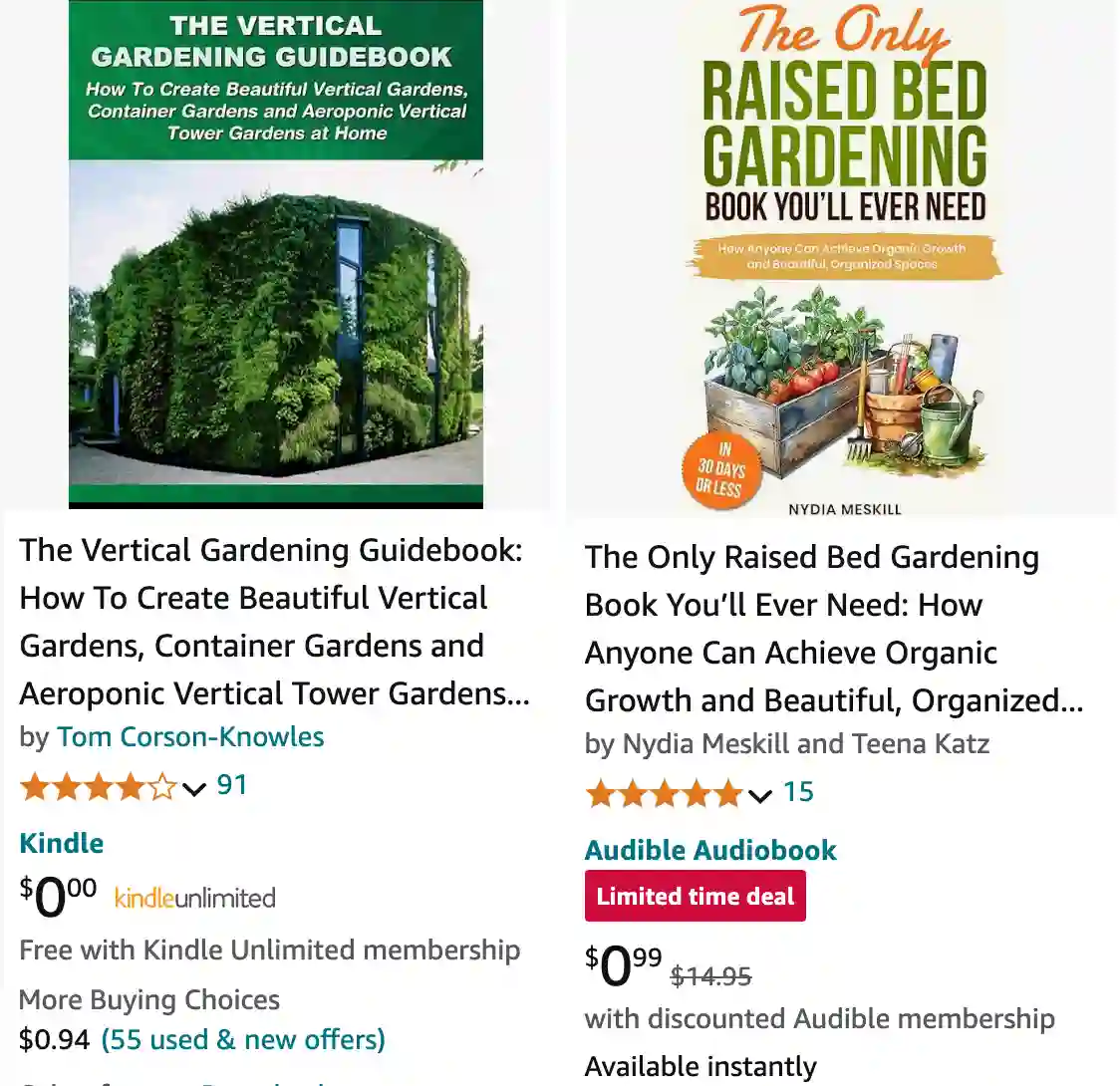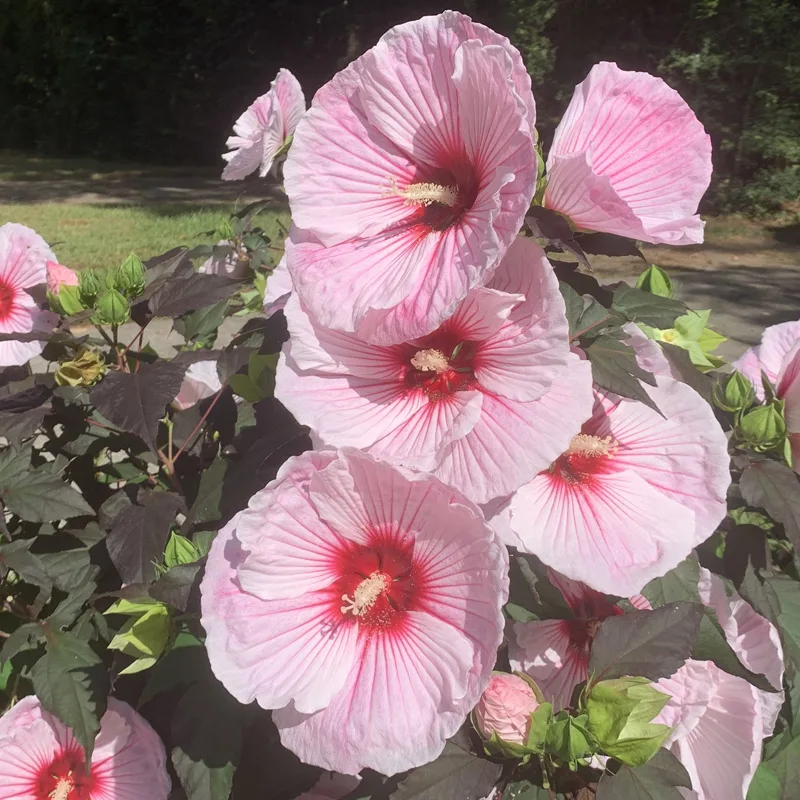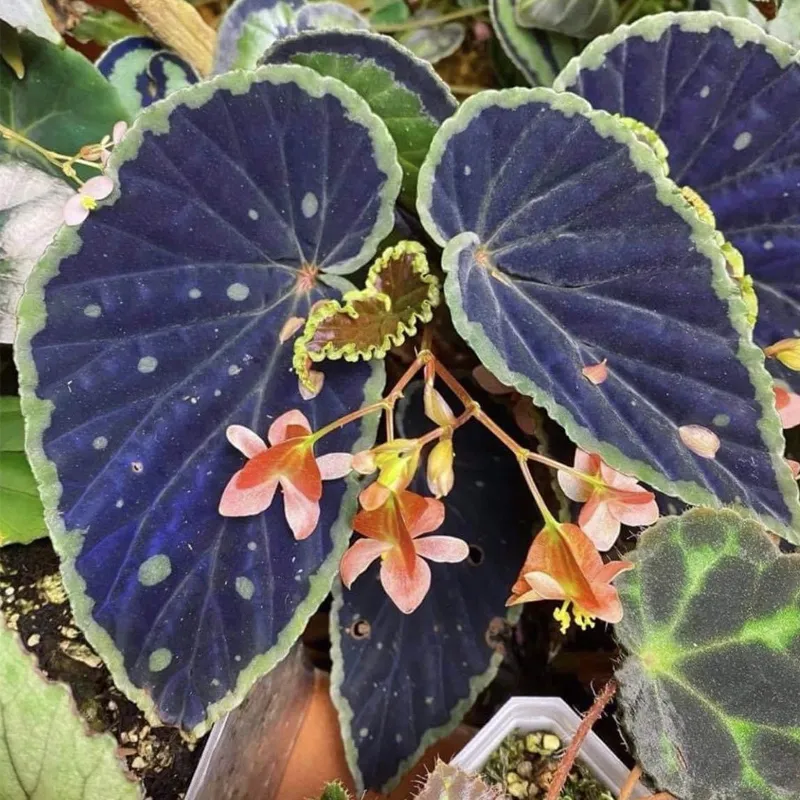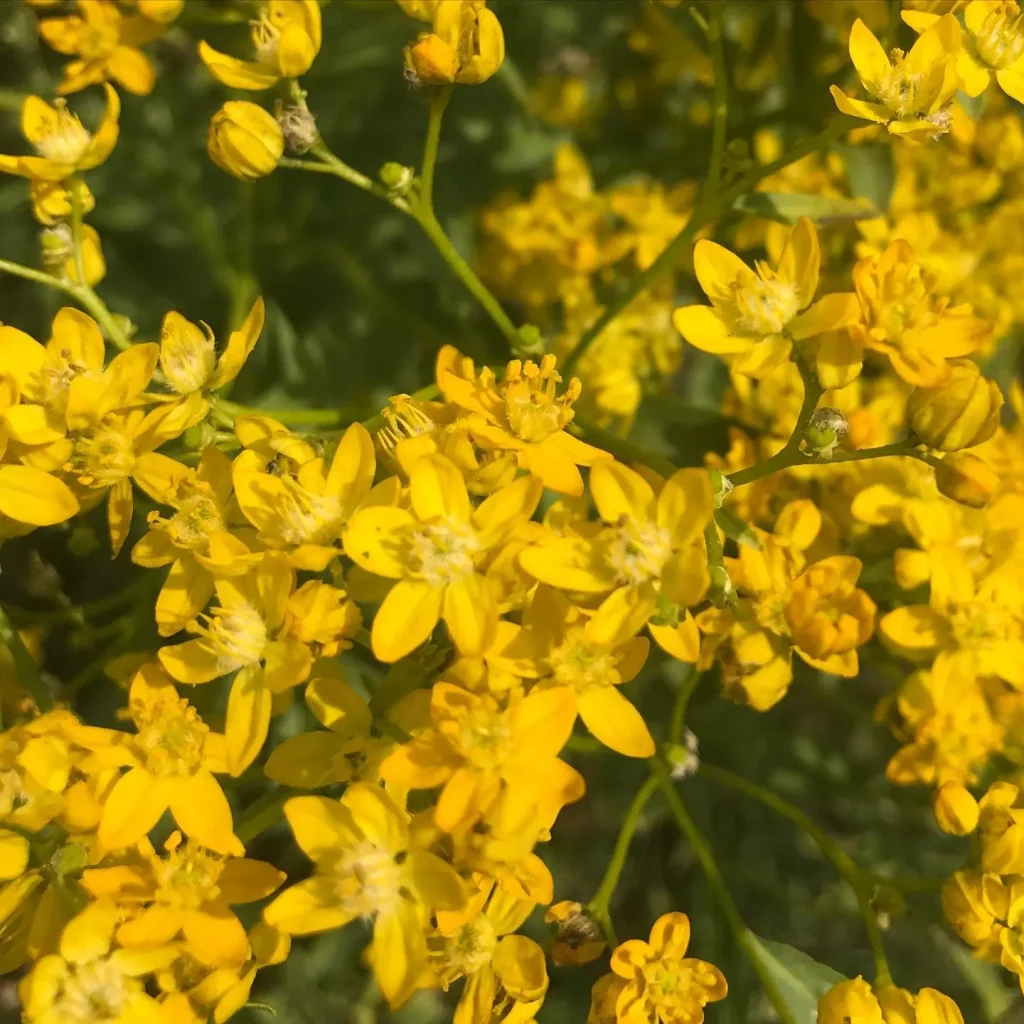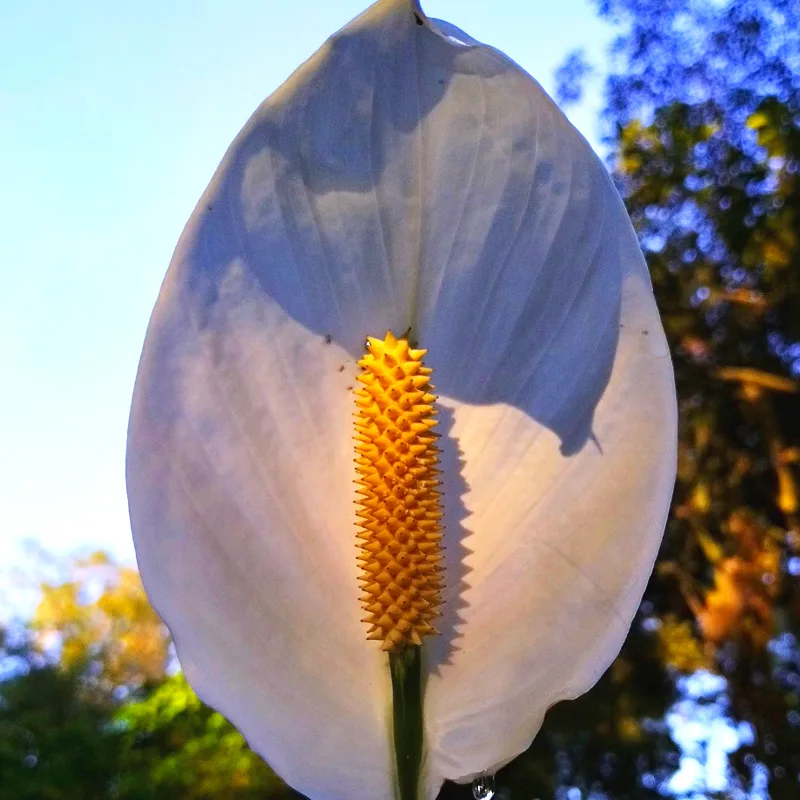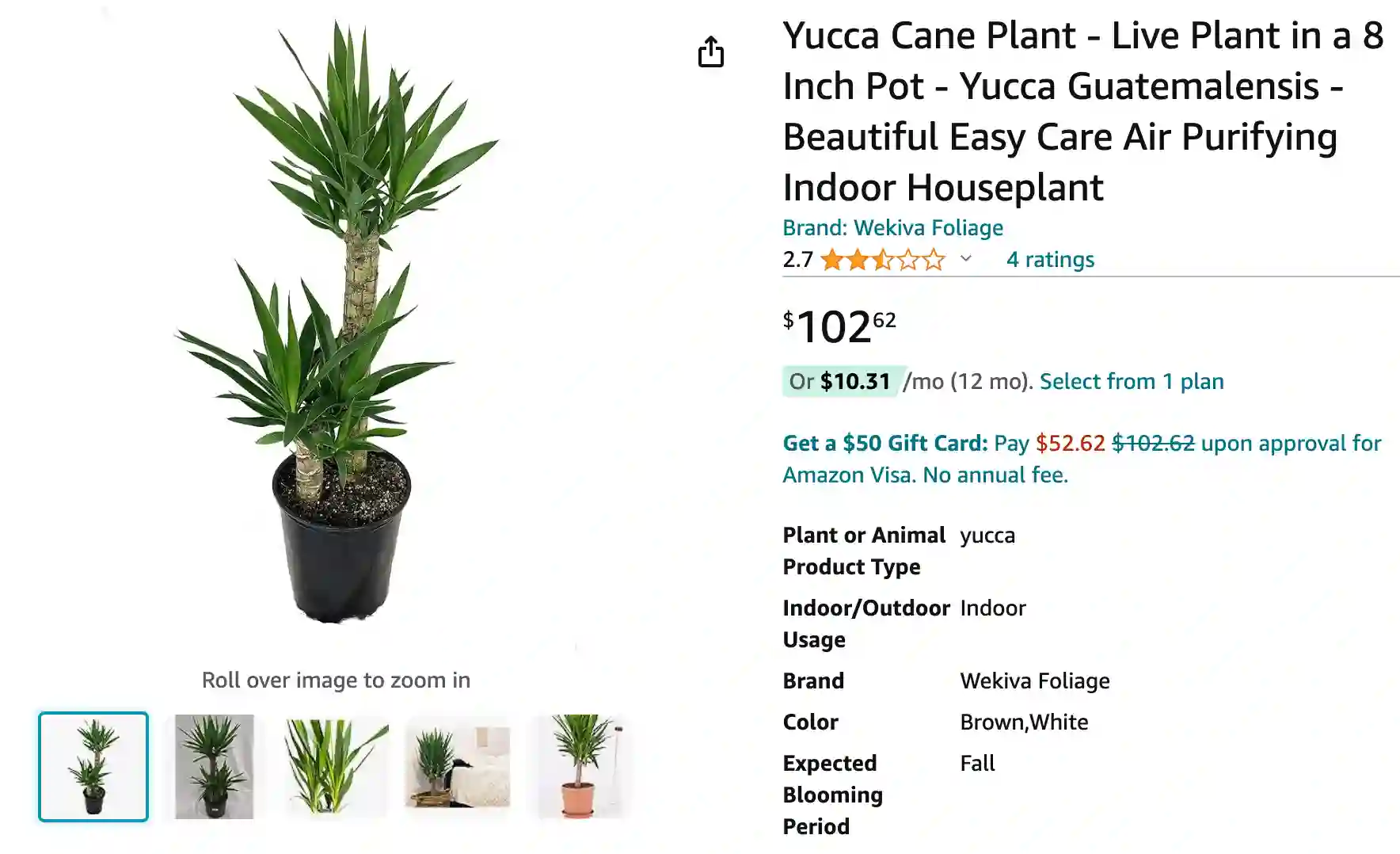
Yucca Cane: My Experience with This Easy-Going Houseplant
Hi everyone, Ferb Vu here! For years, I’ve been a big fan of houseplants. They add life, purify the air, and some are surprisingly easy to care for. The Yucca Cane is one such plant that stole a spot in my heart (and living room) with its architectural presence and low-maintenance needs.
Over the years, I’ve learned a lot about these spiky beauties, and I figured I’d share some of the most common questions I get about them. So, if you’re curious about Yucca Canes, keep reading!
What is a Yucca Cane?
The Yucca Cane, also known as Yucca elephantipes or Spineless Yucca, is a popular houseplant native to Central America and Mexico. It’s known for its clusters of rich green, sword-like leaves that sprout from a thick, woody trunk.
These architectural plants can reach several feet tall, making a bold statement in any room. They’re particularly suited for beginners because they’re forgiving of neglect and thrive in dry environments – perfect for those who forget to water occasionally (like me, sometimes!).
Yucca Cane vs. Dracaena: What’s the Difference?
Both Yucca Canes and Dracaenas are popular houseplants with sword-like leaves. However, there are some key differences:
- Leaf Edges: Yucca Cane leaves have smooth edges, while Dracaena leaves can have smooth or slightly serrated edges.
- Trunk: Yucca Canes typically have a single, thick trunk, while Dracaenas can have multiple, thinner trunks.
- Light: Yucca Canes prefer bright, indirect sunlight, while Dracaenas can tolerate lower light conditions.
- Toxicity: Yucca Canes are mildly toxic to pets and humans if ingested, while Dracaenas are generally considered non-toxic.
How to Care for Your Yucca Cane?
Here are some essential tips for keeping your Yucca Cane happy and thriving:
- Light: These sun-worshippers love bright, indirect sunlight. A south-facing window is ideal, but they can also tolerate east-facing windows. Avoid direct sunlight, which can scorch the leaves.
- Watering: Yucca Canes are drought-tolerant. It’s better to underwater than overwater. Stick your finger in the soil – if the top inch is dry, it’s watering time. Soak the soil thoroughly until water runs out the drainage holes, then let it dry out completely before watering again.
- Soil: Use a well-draining potting mix specifically formulated for cacti and succulents. This allows excess water to drain away, preventing root rot.
- Temperature: Yucca Canes prefer warm temperatures between 65°F and 85°F (18°C and 29°C). Avoid placing them near cold drafts or air conditioners.
- Fertilizer: During the spring and summer growing season, you can feed your Yucca Cane a balanced, diluted liquid fertilizer once a month. Skip fertilizing in the fall and winter.
Propagation: Growing More Yucca Canes
Yucca Canes can be propagated through basal offsets, also known as pups. These are baby Yucca Canes that sprout at the base of the mother plant. Here’s how to do it:
- Wait until the pup is at least 6 inches tall with several leaves.
- Carefully dig around the pup to expose its roots.
- Using a sharp knife, gently sever the pup from the mother plant.
- Repot the pup in a pot with well-draining soil.
- Water the pup thoroughly and place it in bright, indirect sunlight.
With proper care, your pup should establish itself and start growing on its own.
Common Yucca Cane Problems
While Yucca Canes are generally low-maintenance, there are a few problems you might encounter:
- Brown Leaf Tips: This is usually caused by underwatering or low humidity. Increase watering frequency or use a humidifier to add moisture to the air.
- Drooping Leaves: This can be caused by overwatering, underwatering, or lack of light. Check the soil moisture and adjust your watering routine accordingly. Ensure your plant is getting enough bright, indirect sunlight.
- Mealybugs: These sap-sucking insects can appear as white, cottony masses on the leaves. Treat them with insecticidal soap or neem oil.
Conclusion: The Yucca Cane – A Plant for Everyone
The Yucca Cane is a fantastic houseplant for anyone seeking a low-maintenance yet striking addition to their home. Its architectural form and easy-going nature make it a perfect choice for beginners and experienced plant parents alike. Whether you place it in a sunny corner of your living room or a bright office space, the Yucca Cane will add a touch of sophistication and clean lines to your décor. Plus, its air-purifying properties are an added bonus, helping to remove common toxins from your indoor environment. So, if you’re looking for a plant that thrives on neglect and brings a bit of the tropics indoors, look no further than the Yucca Cane. It might just become your new favorite houseplant companion.
